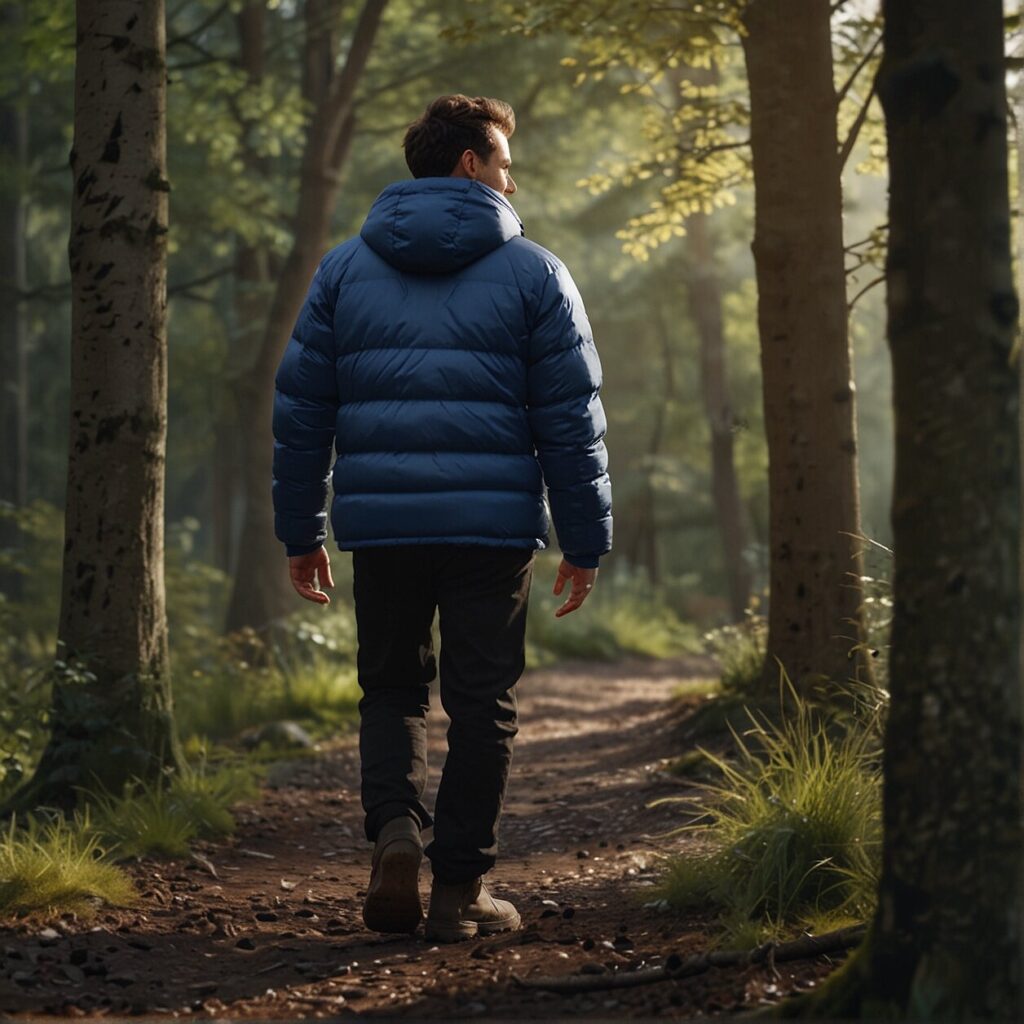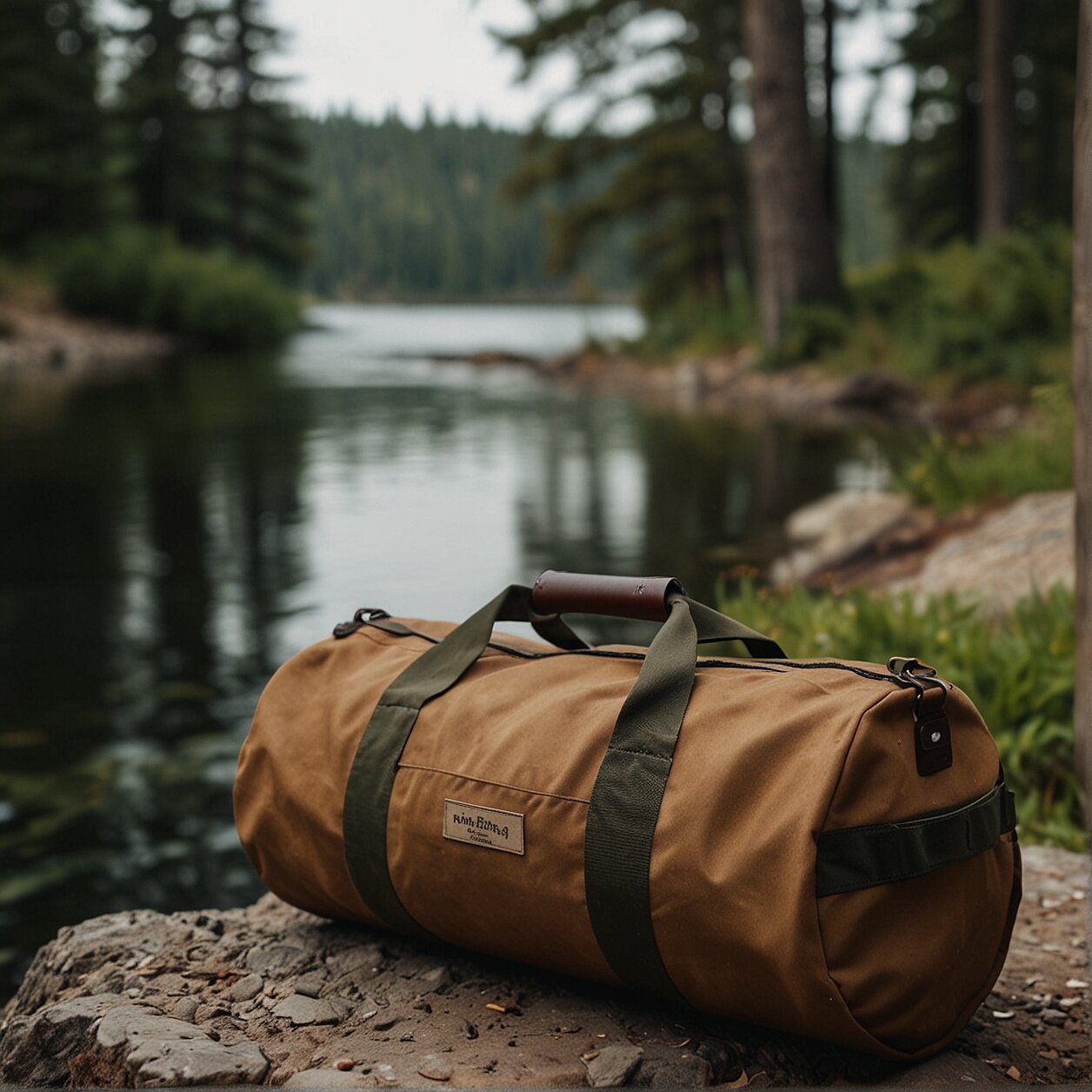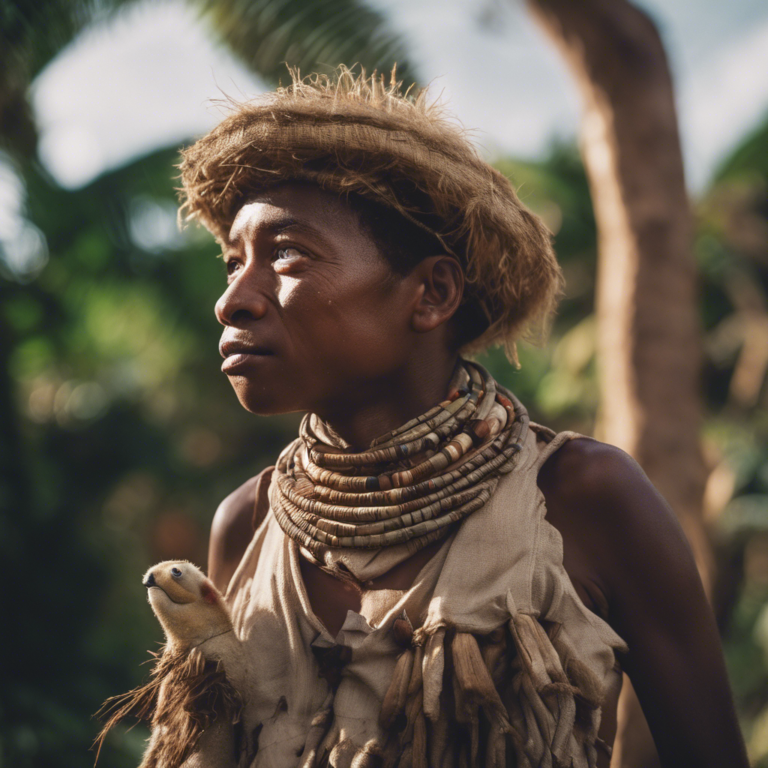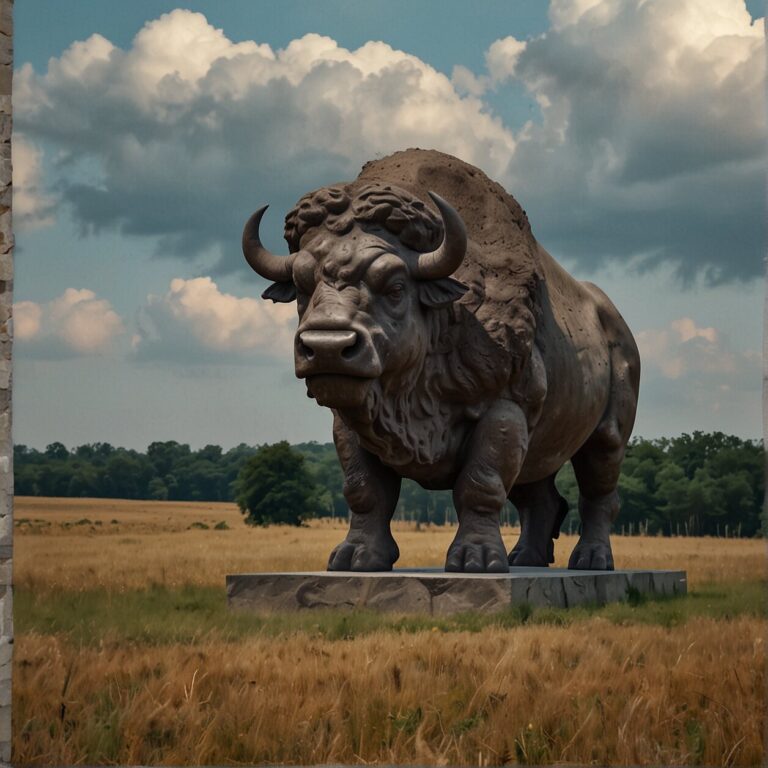Patagonia vs REI: A Friendly Rivalry in Adventure Retail
Welcome to an insightful journey between two powerhouses of outdoor retail – Patagonia and REI.
Adventurers, explorers, and environmentalists alike, you must have either stumbled across, worn or used products from these two brands. Maybe you’re a hard-core fan or maybe you’re just dipping your toes in the world of outdoor retail. Regardless, at some point, you’ve surely asked yourself – How are these brands different? What values do they stand for? And most importantly, which one aligns best with my needs?
Here’s your chance to get those questions answered!
Get ready to explore and compare the brand identities, product lines, and customer engagement strategies of Patagonia and REI. In this expedition, we’ll delve into their core values, environmental impact, unique offerings, and their immense influence on the adventure retail industry.
We hope that through this article, you’ll gain a deeper understanding and appreciation of these brands, helping you make informed decisions on your next outdoor venture. So, let’s get started, shall we?
Tracing the Origins: Foundation and Growth of Patagonia and REI
Let’s start our journey with Patagonia. Founded by Yvon Chouinard in 1973, Patagonia started its humble journey as a small company that made tools for climbers. Today, it has grown into an international behemoth renowned for its quality goods for the outdoors. Proud of its heritage, the brand’s motto remains the same as in its early years: “Build the best product, cause no unnecessary harm, use business to inspire and implement solutions to the environmental crisis.”
Moving down the timeline, we land on REI. Established in 1938 by Mary and Lloyd Anderson, REI began as a simple cooperative to help outdoor enthusiasts acquire quality climbing gear at reasonable prices. A guiding principle of REI has always been “a life outdoors is a life well lived”. Over the years, REI has stayed true to this principle, evolving from a small cooperative to a well-loved retail giant with over 150 stores across America.
While both brands are rooted in a love for the outdoors, their growth trajectories have been dictated by their unique missions and philosophies. Patagonia leans towards sustainability and ethical practices with strong commitments to environmental preservation. In contrast, REI has always championed affordability and accessibility, ensuring everyone can partake in outdoor pursuits. Nearly a century later, both brands continue to impact the outdoor gear market significantly with their combined commitment to quality, sustainability, and passion for the outdoors.

Brand Identities Unveiled: The Core Values of Patagonia and REI
When you delve into the core values of these brands, a vivid picture of their identities begins to emerge. Both Patagonia and REI are deeply committed to environmental sustainability, but they each express this dedication in their unique ways.
Patagonia: Known for their staunch eco-consciousness, Patagonia holds responsibility at their heart. The brand is a champion for sustainable materials and responsible sourcing. They aim to cause ‘no unnecessary harm’ and use their influence for the betterment of the planet. Above all, Patagonia values durability, asserting that the most environmentally-friendly product is the one that lasts the longest. This commitment is apparent in every stitch of their jackets, bags, and outdoor gear. Patagonia’s brand image is rooted primarily in combining uncompromising quality and functionality with strong ethical and ecological principles.
REI Co-op: REI, on the other hand, places a high value on versatility and eco-friendliness. They cater to the adventurous and bold – those who aren’t afraid to try something new and who appreciate the versatile gear to get them there. REI emphasizes affordability without compensating on quality. Sustainability takes center stage in their efforts as well; from their products to their operations, all are managed with an ecological conscience. REI blends the love of the great outdoors with the ethos of eco-friendliness, providing products that enable and enhance exploration while minimizing environmental impact.
While they might share the same audience – adventure enthusiasts – and similar values, Patagonia and REI have managed to carve their individual niches, with each brand being recognized for its distinctive approach to sustainable and high-quality outdoor gear. So, the ultimate choice between Rei vs Patagonia will come down to your personal preferences, whether that’s commitment to durability or versatility.
Environmental Practices: Sustainability Efforts of Patagonia and REI
Forging a pact with nature, both Patagonia and REI have made notable progress in incorporating sustainable practices into their business models. Think of them as guardians of our environment, demonstrating commitment to eco-friendly practices which push the boundaries of typical commerce.
Let’s turn our attention to Patagonia first, which stands as a paragon of sustainable sourcing. Known for its resolute eco-consciousness, Patagonia meticulously ensures its products reflect this ethos. They prioritize the use of sustainable materials in their product lines, with a focus on durability to reduce the wastefully disposable mindset often seen in fashion.
Is sustainable sourcing their only forte? Definitely not! They have also been known to discourage rampant consumerism by urging customers to repair their Patagonia items, rather than simply replacing them. Can you think of another brand that advertises ‘Don’t buy this jacket’ on one of the biggest shopping days of the year? Probably not! This unconventional approach definitely sets them apart – and it’s not just a marketing ploy, because they’ve backed it up with a robust repair program.
Switching gears to REI, a brand that has a well-deserved reputation for versatility and eco-friendliness. They, too, have made strides towards reducing overall environmental impact and promoting sustainability. The affordable REI Co-op line reflects this by focusing on versatility with sustainably sourced materials, making it a great choice for the eco-conscious adventurer on a budget. Not only do you get gear that suits a variety of outdoor pursuits, but you also contribute to the betterment of our planet.
REI stands apart through their commitment to reducing waste in tandem with expanding product utility. Their ‘End of Life’ program demonstrates this, emphasizing durable goods that can withstand the test of time and recycling products whenever possible. Their practices are a testament to their ethos: “A life outdoors is a life well-lived”. And this isn’t only about business for them – REI gives back through generous contributions to environmental causes and initiatives to foster community engagement.
Both Patagonia and REI are forces to be reckoned with in the realm of sustainability, proving that responsible business practices can be equally profitable and beneficial for our planet. Barb, be it affordability or durability, versatility or functionality that leads your decision, remember that choosing either Patagonia or REI is a vote for sustainability.
Product Lines: What Sets Patagonia and REI Apart
With the realm of outdoor gear, both Patagonia and REI have carved out their own distinct niches. Let’s delve into a comparative analysis of some of their most popular product categories.
Men’s Down Jackets
When comparing the men’s down jackets from REI and Patagonia, differences in design philosophy and ethos come to the fore. REI Co-op’s down jackets are designed with a focus on versatility and eco-friendliness. The brand skews towards creating renewable and recyclable pieces. On the contrary, Patagonia emphasizes durability and functionality in their products. Their down jackets are not just warm; they’re designed to withstand extreme weather conditions and rigorous use over time.
Rain Jackets
When it comes to rain jackets, the REI Co-op Rainier rain jacket and Patagonia Torrentshell 3L Rain Jacket serve as excellent representatives of their respective brands. The REI jacket makes a strong case for itself with reliable protection against light rain and wind at an affordable price. This budget-friendly option is suitable for moderate conditions. Conversely, Patagonia’s Torrentshell 3L jacket, while more pricey, is well worth the investment for its versatility and durability, built to withstand harsh weather conditions.
Duffel Bags
Moving on to duffel bags, each brand’s priorities shine through. The REI Co-op’s duffel bag underlines their commitment to sustainability and versatility. Built with recycled materials, it is a solid choice for those who are eco-conscious without sacrificing quality. On the other hand, Patagonia’s duffel bag is thoughtfully built for rugged conditions, proving to be an ideal companion for long-haul trips where durability is key.
When it comes to choosing between Patagonia and REI, the decision ultimately rests on your personal preferences and outdoor gear requirements. Each brand brings its unique strengths to the table, and there’s no one-size-fits-all answer. So, whether your focus is affordability, sustainability, or durability, rest assured that both brands will serve you reliably on your next outdoor adventure.

Market Impact: How Patagonia and REI Drive the Adventure Retail Industry
Both Patagonia and REI are major players in the adventure retail industry, with each making unique contributions to the sector. Their market impact is felt in their commitment to sustainability and ethical practices, their extensive product lines, and their customer-centric strategies.
REI, known for its affordability, is popular among outdoor enthusiasts who seek quality gear without breaking the bank. The REI Co-op is renowned for focusing on versatility, providing gear that can be used in a myriad of outdoor situations, making it a caravan for many first-time campers or trekkers. This affordable versatility has allowed REI to capture a significant share of the market, appealing to those beginning their outdoor adventures, as well as seasoned explorers seeking reliable gear on a budget.
On the other hand, Patagonia, known for its durability and eco-consciousness, has been a leader in driving the industry towards sustainable and ethical practices. Patagonia’s emphasis on durability results in products designed to last, reinforcing their commitment to minimizing waste. The brand is recognized globally for using its business as a platform to address environmental issues, and this strong ethical stance has resonated with customers, solidifying Patagonia’s influence within the market.
Both brands have leveraged the power of online commerce. As of 2024, online shopping has become the norm due to its exceptional convenience. Reputable retailers such as Backcountry and REI Co-op offer a wide selection of products online, ensuring customers can get their favorite gear from the comfort of their own homes. Other brands, like Montbell, are following suit and making their full collections available online too, all thanks to the influence of industry veterans like Patagonia and REI.
In the end, the decision between REI and Patagonia often comes down to personal preferences, as both offer quality products designed with the customer and environment in mind. Their aligned commitments to ethical practices, alongside their distinctive product offerings, underscore how these two brands have and continue to shape the future of the adventure retail industry.
FAQ’S
Ready to dive deeper and unravel more about Patagonia and REI? This comprehensive set of frequently asked questions (FAQs) is ready to feed your curiosity. You’ll explore various aspects about each brand, their product quality, commitment to sustainability, customer loyalty programs, collaborations, and community support initiatives. Exciting insights are just responses away. Sit tight and enjoy this enlightening journey of discovery!
Which brand, Patagonia or REI, offers a wider range of products?
Both Patagonia and REI have a versatile range of products catered towards different categories of outdoor activities. Drum roll, please! The answer you’ve been waiting for: when it comes to diversity, REI comes out ahead. Yes, you read that right!
The reason is simple. REI, as a cooperative, not only sells its own brand products under the ‘REI Co-op’ label but also offers a vast array of products from various other outdoor brands. This means you, as a customer, get to choose from a comprehensive lineup encompassing numerous reputable manufacturers apart from REI’s own product line.
That isn’t to imply that Patagonia lags behind. Far from it! Patagonia indeed holds a commendable array of products. From outdoor gear to clothing and from kids to adults, Patagonia does cover a broad spectrum of products for the outdoor lover. However, if we’re comparing the sheer number of different products on offer, REI takes the cake.
Ultimately, the decision between Patagonia and REI comes down to personal preference and specific needs. Dare to compare, and you’ll surely find the brand that’s right up your adventure alley.
How do Patagonia and REI’s sustainability efforts compare?
While both Patagonia and REI Co-op fly the banner for sustainability, they approach it in different ways. Let’s look at their strategies.
Patagonia, as a brand, has long been synonymous with responsible sourcing and the use of sustainable materials. Their commitment to the planet is unwavering, with strategies such as sourcing recycled materials and prioritizing fair trade-certified practices. They have been consistent in pushing boundaries with their mission against fast fashion, encouraging customers to buy less but buy better quality, longer-lasting items.
On the other hand, REI Co-op displays an unwavering dedication to eco-friendliness. Their principle is based on making the most of what we have, and promoting the use of recycled materials. The company’s product designs focus on versatility, aligning with customer needs, be that durability for regular outdoor exploration or affordability for occasional adventurists. A critical part of their sustainability promise is offering repair services, promoting product longevity and waste reduction.
So, when it comes to aligning your shopping preferences with your sustainability values, the choice between REI Co-op and Patagonia depends on your specific needs. Each company excels in their unique ways but they share an underlying value – putting planet first.
What kind of customer loyalty programs do Patagonia and REI offer?
Let’s delve a little deeper into the ways Patagonia and REI reward their customers. Both of these brands have developed loyalty programs that not only provide their loyal customers with unique benefits but also align with their core values.
Starting with REI, they have a program called REI Co-op Membership. For a one-time fee of $20, members are offered a lifetime of benefits. These include an annual 10% back on eligible purchases, sales and special offers only accessible to members, and a say in REI’s direction by voting in the board of directors election. Additionally, REI extends benefits such as special pricing on REI classes, events, rentals, and REI adventures trips.
Shifting our focus to Patagonia, they have taken a different approach by not offering a traditional loyalty program. Instead, their mission to build the best product, cause no unnecessary harm, and use business to inspire solutions to the environmental crisis is their loyalty program. Essentially, they are offering their commitment to customers towards quality and sustainability as a reward. Customers who resonate with these values are naturally loyal to the brand.
In conclusion, while REI offers tangible monetary benefits through their REI Co-op Membership, Patagonia provides an intangible reward; alignment with the customer’s personal values towards sustainability and environmental protection.
Are there any collaborations between Patagonia and REI?
Are there any collaborations between Patagonia and REI? The answer’s rather interesting. While you may expect these competitive brands to fend off each other, that’s not the entirety of the story.
The two brands stand united in some specific areas, particularly those aligned with shared sustainability objectives and advocacy for outdoor preservation. This passion for preserving the environment has led to meaningful collaborations to promote educational and conservation initiatives, proving that competition doesn’t mean lack of cooperation. Such collaborations, even if rare, shine a light on their shared dedication to giving back to the environment and outdoor communities.
So, while they compete in the market, sending rain jackets and down jackets into a head to head clash of affordability, eco-friendliness, durability, and versatility, they also come together for greater causes. In these instances, your support for either brand doesn’t have to be a decision between REI vs Patagonia, but rather a celebration of both. Keep your eyes open for their joint initiatives. After all, in the balance of things, supporting the duo may mean a win not just for your wardrobe, but for the environment too.
How do Patagonia and REI support outdoor communities and initiatives?
Supporting outdoor communities and initiatives stands as one of the core values intrinsic to both Patagonia and REI. These brands tirelessly champion contributions that make a difference, ensuring that their commitment goes beyond merely manufacturing sustainable clothing and extends to making a genuine impact on the environment and communities.
Patagonia, in particular, is known for its advocacy about environmental and social issues, demonstrating alignment of its core values with the wider aspirations of its consumers. The brand’s philanthropic activities are facilitated via the “1% For the Planet” initiative, where they commit 1% of their total annual sales to environmental organizations around the globe, seeking to address the pressing challenges of today’s world.
REI, on the other hand, focuses on fostering a community centered around a love for the outdoors. Through their “REI Co-op” program, REI provides support to non-profit organizations that work to create access to and steward outdoor recreational areas. Also noteworthy is REI’s “Good and Used” program, which encourages consumers to recycle gently used outdoor gear, thus keeping these items out of landfills while also making outdoor experiences accessible to a wider audience.
The brands’ differing approaches reflect a shared commitment to building a stronger relationship with both their consumers and the planet, ushering in a new era of outdoor retail where purpose and impact stand shoulder-to-shoulder with product quality and business success.







